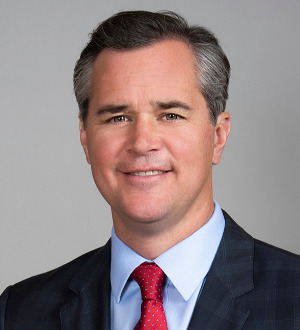The intricate nature of U.S. criminal law demands not only vigilance but also thorough comprehension of its fundamental principles and structure.
Distinct from civil law, criminal law in the U.S. is vital for regulating illegal activity, maintaining social order and safeguarding the public from harmful actions. It establishes clear boundaries of acceptable conduct, providing a framework within which society can function smoothly.
Criminal law in the U.S. encompasses a wide spectrum of offenses, from minor infractions, such as traffic violations, to major felonies like murder and armed robbery, each carrying different legal consequences.
- Criminal defense lawyers face rapid federal and state changes shaping sentencing, prison oversight and rehabilitation priorities.
- Nearly half of people in federal prison serve long drug sentences, often over 10 years, costing states about $60,989 per person annually.
- Reforms like the First Step Act cut recidivism to about 9.7 percent for participants, compared with roughly 45 percent overall.
- Pending bills on sentencing equity and solitary confinement could affect thousands more cases, making now the time to stay informed.
Governed by both federal and state statutes, U.S. criminal law represents a complex network of legal authorities. Federal law addresses offenses crossing state lines and involving federal interests, while state law covers crimes within individual jurisdictions.
Criminal justice reform in the United States has reached a pivotal moment, as data indicates widespread public support for enhancing the criminal legal system to foster a more humane, just and equitable society.
This article highlights key criminal justice reform measures, including both enacted legislation and proposals such as the Equal Act, the First Step Implementation Act and the Federal Prison Oversight Act.
Reform on the Horizon
As criminal justice reform efforts continue nationwide, lawmakers remain focused on sentencing policy, prison oversight and rehabilitation initiatives. Recent 2025 polling from the Justice Action Network found strong majority support among voters for federal criminal justice reforms, including reducing incarceration for nonviolent offenses and expanding rehabilitation-focused approaches.
The vast size and substantial costs of the U.S. criminal justice system present numerous challenges that policymakers must address through bipartisan support and policies centered on accountability and fairness. Certain long-standing practices in criminal law, often based on anecdotal rather than empirical evidence, risk increasing recidivism and system costs.
Some federal reforms have already been enacted, while others remain pending proposals in Congress.
Disparities in Sentencing
According to a recent analysis of Bureau of Justice Statistics data, roughly half of people currently incarcerated in federal prisons in the U.S. (excluding state facilities) are serving prolonged sentences for drug-related offenses.
On average, individuals serving time for drug crimes have sentences longer than 10 years, with U.S. federal law generally requiring that 85% of those sentences be served.
The stark reality is that a significant share of the incarcerated population in state and federal facilities is serving time for violent offenses, not just drug crimes.
Estimates of incarceration costs vary widely by jurisdiction. Rather than measuring costs per taxpayer, government data shows that annual spending per incarcerated person often falls within tens of thousands of dollars, with median state corrections spending at about $60,989 per incarcerated individual.
In some high‑cost states, prison expenditures per person exceed $100,000 annually, while other states spend less than $30,000 per incarcerated person.
However, recidivism remains a challenge. Multiple studies indicate that a substantial proportion of people released from prison are rearrested within several years, underscoring the ongoing difficulty of reducing repeat offending.
Federal Sentencing Reforms
These legislative measures target sentencing disparities and aim to improve outcomes for individuals in the federal criminal justice system.
The First Step Act
In 2018, the bipartisan First Step Act was signed into law, aiming to reduce federal drug sentences and create programs to lower recidivism. Those who participated in early First Step Act recidivism reduction programming have shown lower rates of reoffending than individuals who did not complete similar programming, reinforcing the law’s focus on rehabilitation alongside sentencing reform.
The Equal Act
The EQUAL Act seeks to eliminate the federal sentencing disparity between crack and powder cocaine offenses that has disproportionately affected Black communities. The bill passed the House but was introduced in the Senate and never became law and it remains pending legislative reform.
The First Step Implementation Act
The First Step Implementation Act would build upon the First Step Act by allowing courts to apply some provisions retroactively and by considering criminal history holistically rather than automatically imposing mandatory minimums.
While the Implementation Act has not yet been enacted, analyses of the existing First Step Act show that more than 40,000 people in federal prison have had sentences reduced or been released early under its provisions, with only about 9.7% rearrested or returned to custody compared with roughly 45% in the general federal release population.
Proposed expansions aim to extend similar relief to additional individuals, though no official federal estimate currently quantifies how many would benefit.
The Smarter Sentencing Act
The Smarter Sentencing Act remains a proposed reform and has not yet been enacted. Introduced in 2023, the bill would reduce certain mandatory minimum sentences for nonviolent drug offenses and promote judicial discretion while requiring reporting on the impacts of these reductions on federal corrections, including recidivism and costs.
Although still pending in Congress, the Act reflects ongoing efforts to advance individualized sentencing and more equitable outcomes, complementing earlier reforms such as the First Step Act.
Prison Oversight and Solitary Confinement
Oversight of federal prisons has historically been limited, leaving challenges in addressing conditions, misconduct and inmate safety.
The Federal Prison Oversight Act, passed in 2024, empowers the Department of Justice’s inspector general to conduct risk-based assessments of federal prisons and establishes a Bureau of Prisons ombudsperson or elected oversight official to investigate complaints from staff or incarcerated individuals.
Concerns around solitary confinement remain significant. Research shows that long-term isolation increases the risk of mental health issues and self-harm. Alternatives such as short-term separation, rehabilitative programs, mental health and substance abuse treatment and therapy have proven more effective at managing behavioral infractions.
The Solitary Confinement Reform Act, introduced in 2024, aims to reduce or eliminate solitary confinement in federal facilities but has not yet been enacted. Executive actions in 2022 also directed federal agencies to reduce reliance on isolation.
Nearly 2 million people are held in state prisons, federal prisons, local jails, juvenile facilities, immigration detention centers and other confinement settings in the U.S.
The Future of U.S. Criminal Law
Public support for criminal justice reform in the U.S. remains strong, with growing consensus on the need to reduce sentencing disparities, enhance prison oversight and limit the use of solitary confinement.
Legislative measures such as the Equal Act, the First Step Implementation Act and the Federal Prison Oversight Act represent concrete steps toward these goals.
While some provisions are already enacted, others remain pending and if passed, they could meaningfully improve fairness, rehabilitation and accountability across federal prisons. Bipartisan momentum and public advocacy suggest continued progress is possible, signaling a potential shift toward a more just and effective criminal justice system.
Stay informed on the latest developments and find expert guidance by visiting our Criminal Law page.










































